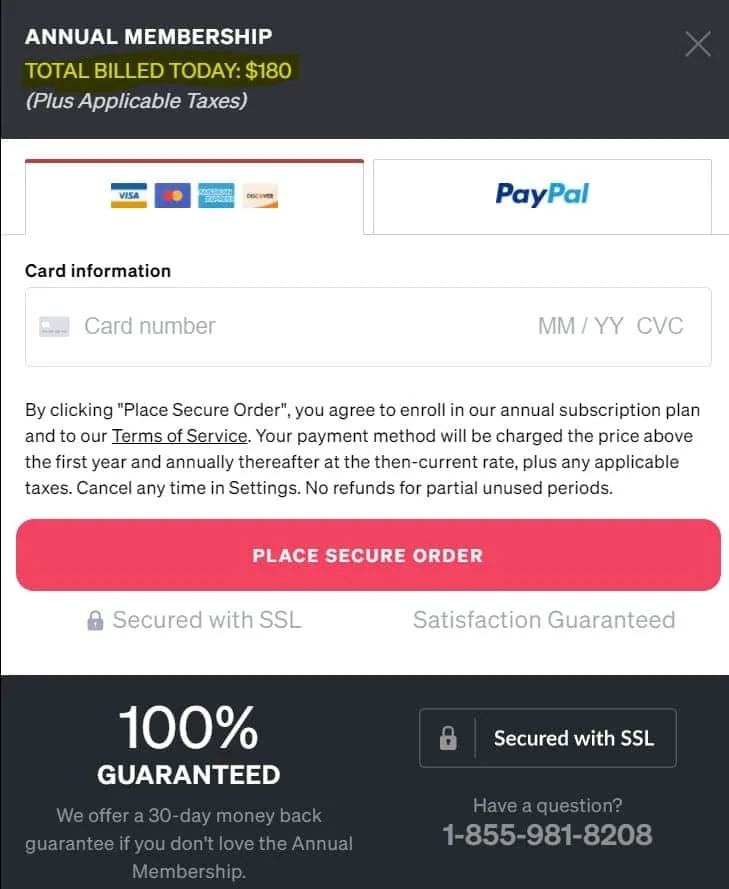
✔ Course Name: Paul Krugman Teaches Economics and Society
✔ Instructor: Paul Krugman (Nobel Prize-Winning Economist & NYT Columnist)
✔ Number of Lessons: 22 video lessons (~3 hours 56 minutes total)
✔ Workbook & Resources: Yes, includes exercises and additional readings
✔ Skill Level: Beginner-friendly, no prior economics knowledge required
- Uses real-life, relatable examples.
- Covers important topics like inequality.
- Links economics to politics and culture.
- Encourages critical, deep thinking.
- Highlights the impact of economic policies.
- Users might get burdened
- The course is a bit lengthy
I was excited to learn about Paul Krugman’s MasterClass. Is a Nobel Prize-winning economist teaching me about markets and money? Join me!
Paul offered to explain how the economy functions, which is something I’ve always wanted to do without getting bogged down in technicalities.
I got my coffee, signed on, and started studying his lectures. In this review, I’ll share what I learned, what surprised me, and whether this course lives up to the hype.
If you’re curious about economics or love a good teacher, stick around. I’ve got you covered!
“I believe in a relatively equal society, supported by institutions that limit extremes of wealth and poverty. I believe in democracy, civil liberties, and the rule of law. That makes me a liberal, and I’m proud of it.” ― Paul Krugman.
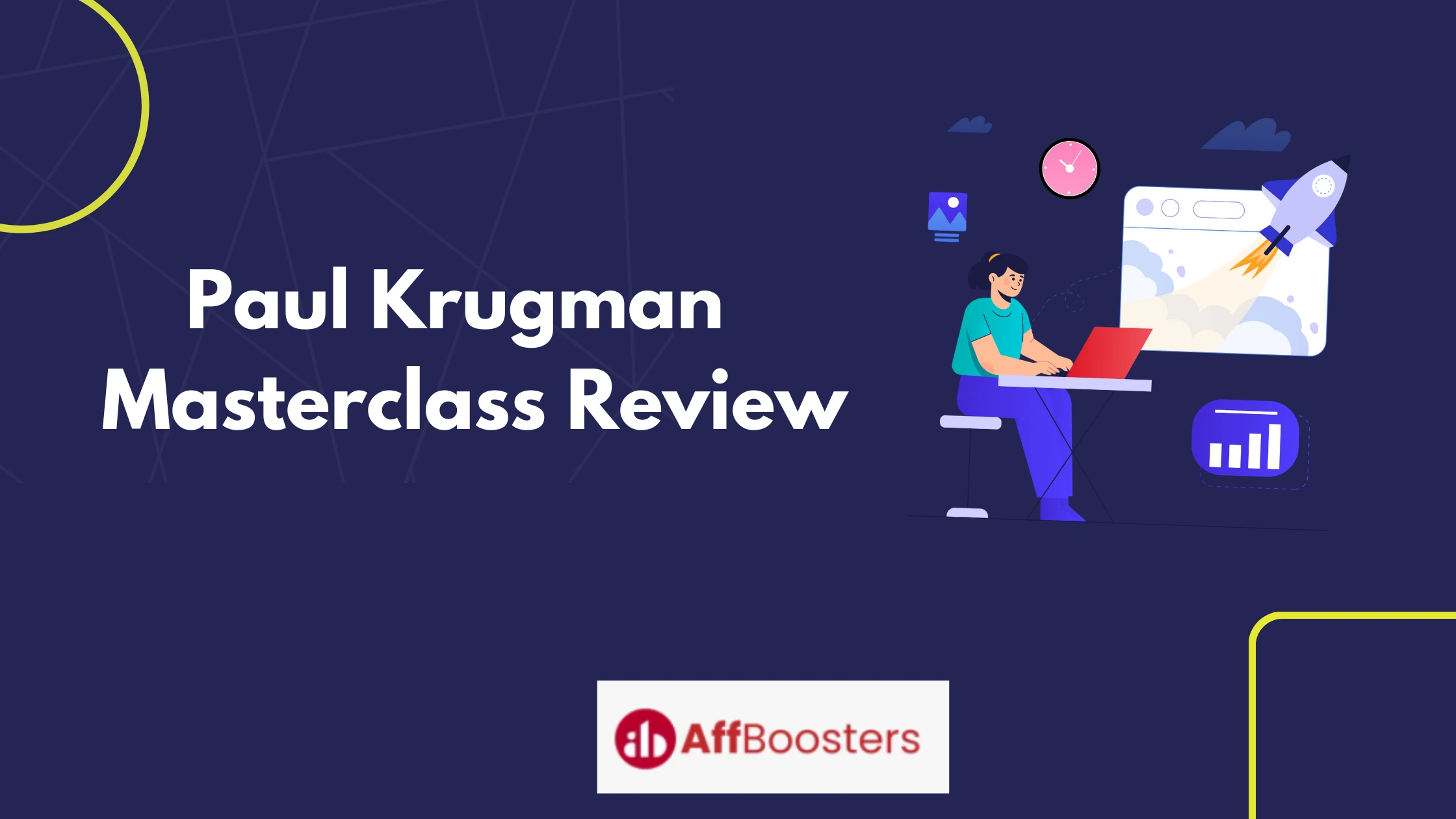
Bottom Line Upfront:
I recently took Paul Krugman’s MasterClass and I highly recommend it. It’s great for understanding economics easily.
Nobel Prize winner Paul Krugmen says that Economics is more than just a few answers. He dedicated a whole course on Economics and Society and that teaches a lot of things.
I, myself enrolled for this masterclass and gained a lot of insights from it which are helping me in many ways.
Krugman explains complex ideas in simple ways, using real examples. The lessons are clear and exciting, covering important topics like trade and income.
The class is good for beginners and those who already know some economics. Plus, the extra materials and the easy-to-use MasterClass website really help in learning more.
Now it’s your turn to do that so enroll today into Paul Krugmen’s Economics and Society Masterclass.
About Paul Krugman Economics & Society Masterclass
In the course Economics and Society, Paul Krugman takes you through a journey of understanding and relating; he explains how What you get is what you add to the economy.
He makes you think critically and teaches you the application of his teachings in your day-to-day life.
Basically, this course enables and encourages your curiosity.
He teaches you the principles that shape political and social mindsets and influence global standards of living. He entertains you with numerous generic and simple examples.
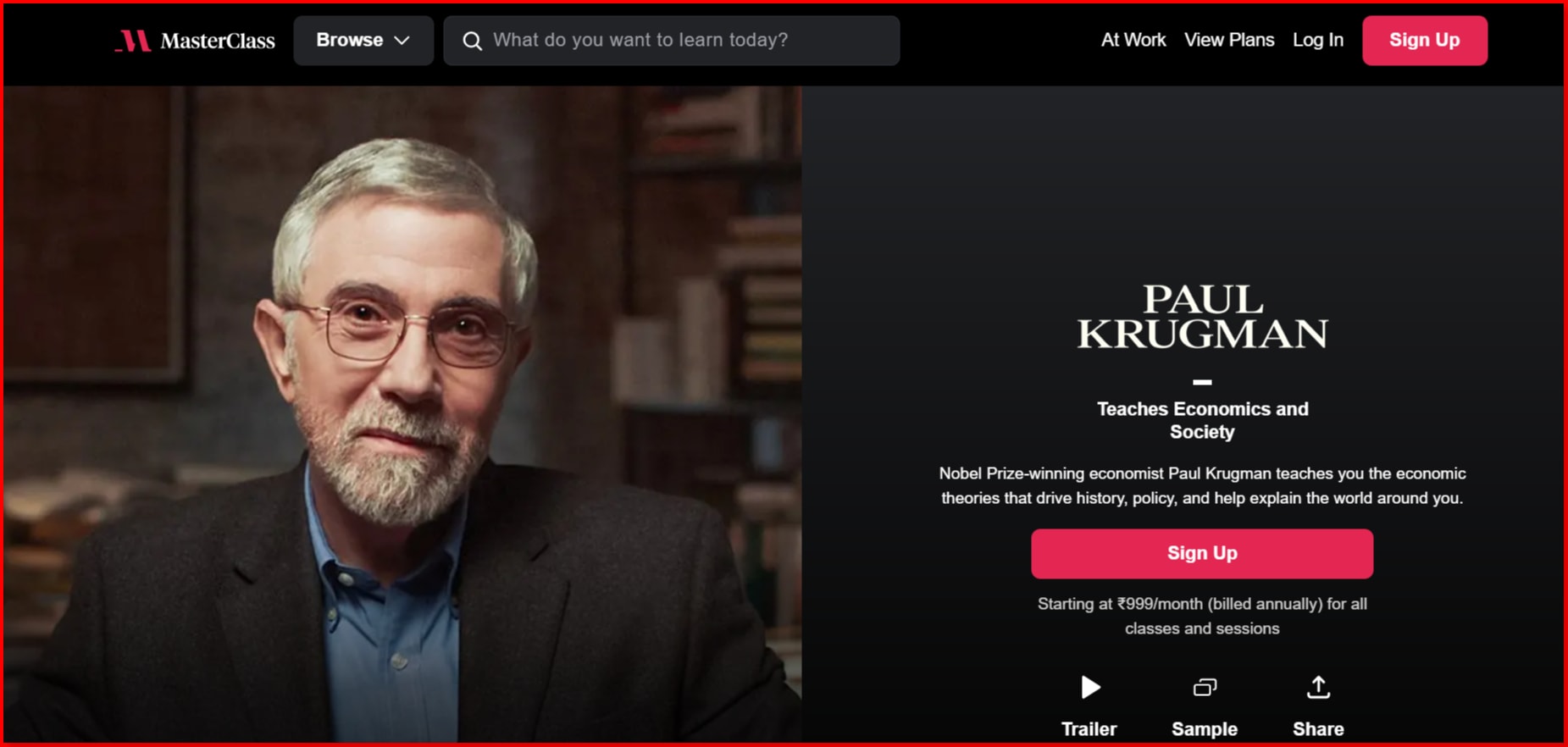
Earning a living and how to spend that are subjects of the matter here.
The course also includes knowledge about the basic working system of Federal Reserves; it tells you how unexpected financial crises became worse due to a lack of awareness.
It helps you to stay aware and prepare for uncertain financial situations and unpredictable economic future; it answers a lot of financial and system-based questions.
Ethics and principles are a big part of the world’s economic cycle.
Paul has explained concepts like tax cuts, interest cuts, IS-LM, Globalisation and its effects, the world economy, etc.
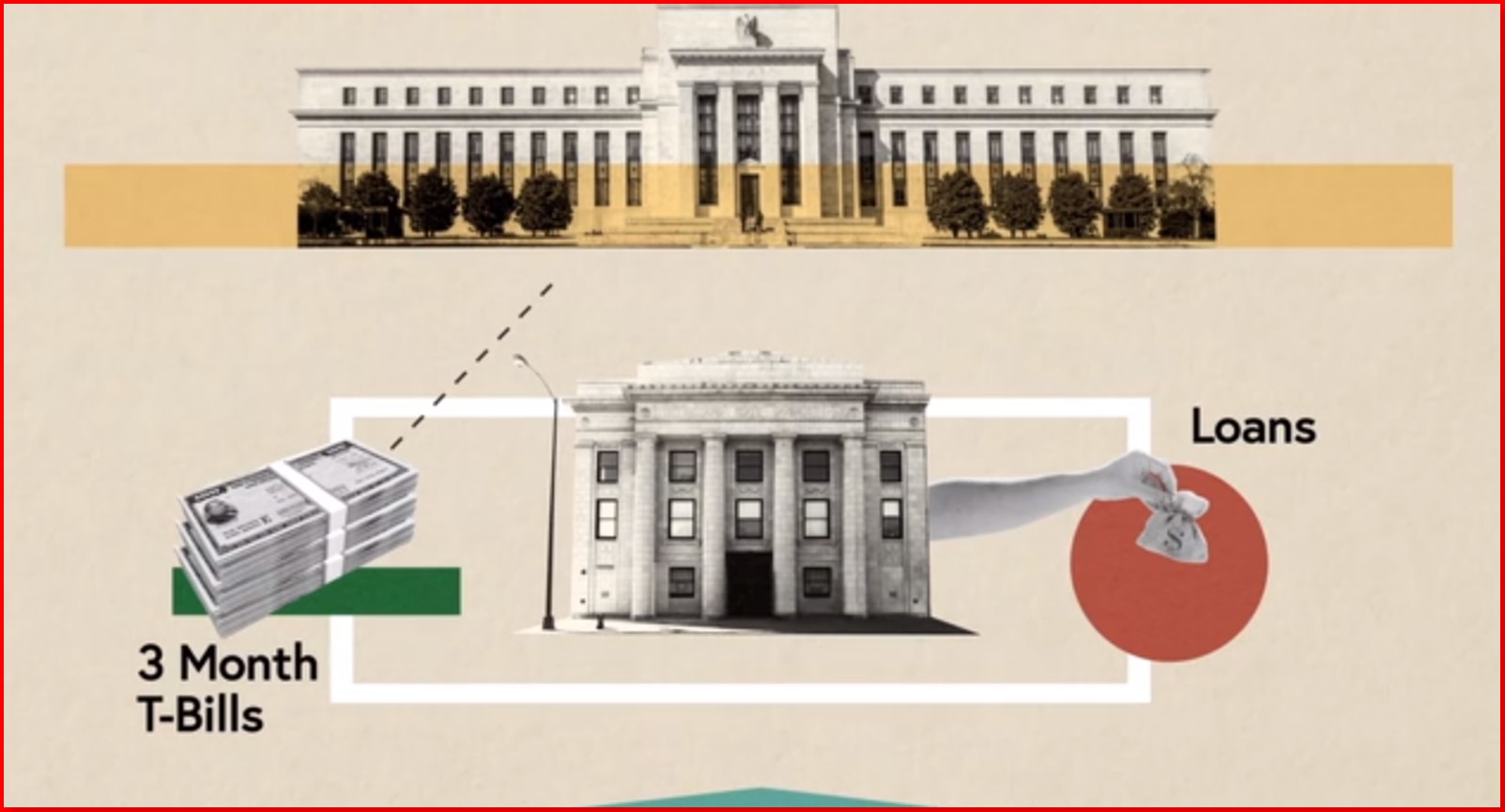
Paul teaches us to brace ourselves for various kinds of economic crises; he explains policymaking and illustrates how economics works. He gives an idea about the financial plan one must prefer and work accordingly.
Economics and Society provides you with exclusive content by Paul Krugman, and it includes detailed explanations of various concepts related to the subject of the course.
It extensively includes 22 pre-recorded videos, which are based on the lessons, and they can be watched anytime.
The pre-recorded videos are sectioned as follows – Theories ( based on history ), Practical application ( based on current world situations ), and Conclusion (problem-solving, suggestions, and advice ).
The course of 22 videos, inclusive of many concepts and examples, took around 3.5 hours, i.e. 210/215 minutes, to complete. It occupies your mind and attention and increases your curiosity.
Awards & Honors
| Category | Details |
|---|---|
| Awards and Honors | Nobel Prize (2008); John Bates Clark Medal (1991) |
| Education | B.A. from Yale University (1974), Ph.D. from MIT (1977) |
| Academic Career | Member of MIT’s economics faculty (1979-2000), hiatus to teach at Stanford University (1994-96) |
| Other Roles | Chief staffer for international economics on U.S. Pres. Ronald Reagan’s Council of Economic Advisers (1982-83), Research associate at the National Bureau of Economic Research (from 1979) |
| Research and Contributions | Integrated economies of scale into general equilibrium models, furthered understanding of trade and production in a globalized economy, research on ‘new economic geography’ |
Detailed Lesson Plan for Paul Krugman’s MasterClass
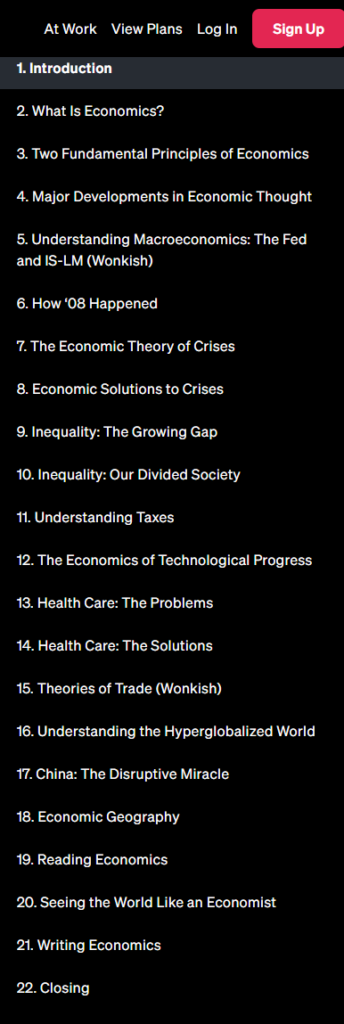
1. Introduction
Overview: Paul Krugman introduces the course by explaining the importance of economics in understanding society. He emphasizes how economics isn’t just about numbers but helps us understand the world, from global markets to personal decisions.
2. What Is Economics?
Key Concepts: Krugman explains the core of economics—how people make decisions based on scarce resources and how those decisions impact everything from individuals to global systems. He discusses the concept of scarcity, choices, and opportunity cost, helping you see how economics shapes the world around you.
3. Two Fundamental Principles of Economics
Demand and Supply: Krugman discusses the two fundamental principles, demand and supply, and how these principles govern the functioning of markets. He explains how changes on either side can lead to shifts in pricing and availability of goods and services.
4. Major Developments in Economic Thought
Historical Evolution: The course covers how economic thought has evolved from classical economics to modern economic theories. Krugman highlights the key thinkers, such as Adam Smith and John Maynard Keynes, who shaped economic policy and practices.
5. Understanding Macroeconomics: The Fed and IS-LM (Wonkish)
Macroeconomics Fundamentals: Krugman introduces the concept of macroeconomics, focusing on aggregate demand, aggregate supply, and the Federal Reserve. He also delves into the IS-LM model, an economic model that describes the relationship between interest rates and output in the goods and money markets.
6. How ‘08 Happened
The Financial Crisis: A detailed analysis of the 2008 financial crisis and its causes. Krugman breaks down how housing market instability, bank failures, and government policy contributed to one of the worst financial crises in modern history.
7. The Economic Theory of Crises
Understanding Financial Crises: Krugman explains the economic theories behind financial crises, focusing on the role of speculation, credit bubbles, and market failures. He also discusses how crises unfold and the long-term consequences for the economy.
8. Economic Solutions to Crises
Responses to Crises: Krugman discusses solutions to economic crises, such as government intervention, stimulus packages, and financial regulations. He examines the economic policies that were implemented to combat the 2008 crisis and their long-term effects.
9. Inequality: The Growing Gap
Economic Inequality: Krugman highlights the growing issue of economic inequality and its impact on society. He examines the causes of inequality, including income distribution and the role of globalization in widening the gap between the rich and the poor.
10. Inequality: Our Divided Society
Social and Political Implications: Krugman dives into the social and political consequences of inequality. He discusses how disparities in wealth can affect political stability, social mobility, and overall economic growth.
11. Understanding Taxes
Taxation Systems: Krugman explains how tax systems work and their crucial role in the economy. He covers progressive taxes, regressive taxes, and corporate taxes, and discusses how taxes influence behavior and economic development.
12. The Economics of Technological Progress
Technological Change: Krugman explores the economic impact of technological progress. He looks at how innovation shapes industries, creates new markets, and disrupts existing structures. He also discusses how economies adapt to technological advancements and the challenges they bring.
13. Health Care: The Problems
Challenges in Health Care: Krugman covers the complex economics of healthcare systems, focusing on rising costs, accessibility, and inefficiencies. He explains how different countries approach healthcare and the economic challenges involved.
14. Health Care: The Solutions
Potential Solutions: Krugman proposes economic solutions to the problems in healthcare, including universal healthcare systems, market-based reforms, and government intervention. He evaluates the economic feasibility of different approaches.
15. Theories of Trade (Wonkish)
International Trade: A deeper dive into the economic theories of trade, Krugman explains how countries engage in trade, the benefits of comparative advantage, and how trade affects global economics. He also discusses the political implications of trade agreements and tariffs.
16. Understanding the Hyperglobalized World
Globalization: Krugman looks at how globalization has shaped the modern economy. He discusses the role of international trade, capital flows, and labor markets in creating an interconnected world economy, and the challenges that arise from this.
17. China: The Disruptive Miracle
China’s Economic Growth: Krugman examines China’s rapid economic growth and its disruptive effects on the global economy. He explains how China has become a major economic player and what that means for global trade, manufacturing, and politics.
18. Economic Geography
The Role of Geography: Krugman discusses economic geography, focusing on how the location and resources of countries impact their economic success. He explores the global distribution of wealth and the geographic factors that influence development.
19. Reading Economics
Analyzing Economic Data: Krugman teaches how to read economic data and interpret economic reports. He explains how to use economic indicators and statistical tools to analyze real-world economic scenarios.
20. Seeing the World Like an Economist
Applying Economic Thinking: Krugman encourages students to apply economic principles to everyday life. He explains how understanding economics can improve decision-making in business, personal finance, and social issues.
21. Writing Economics
Communicating Economic Ideas: In this lesson, Krugman shares how to effectively communicate economic concepts through writing, whether for research papers, articles, or public discourse. He emphasizes the importance of clarity and simplicity in explaining complex ideas.
22. Closing
Conclusion: Krugman wraps up the course by reinforcing the importance of economics in understanding and shaping society. He encourages learners to apply the principles they’ve learned to think critically about the world around them.
This comprehensive course not only provides a deep dive into economic theory but also connects it to real-world issues, offering learners practical tools to understand and address societal challenges.
My Experience with Paul Krugman’s MasterClass
I’ve always been curious about how the economy works but found traditional explanations too complex. That’s why I was excited to take Paul Krugman’s MasterClass on Economics and Society—and I’m glad I did!
Krugman explains economic concepts simply and engagingly, using real-world examples to show how policies, markets, and global trade affect our daily lives. His breakdown of topics like income inequality, financial crises, and healthcare economics made me think differently about the world around me.
Why did I like Paul Krugman’s MasterClass?
✔ Easy to Understand – Krugman avoids jargon and explains things in a way anyone can grasp.
✔ Real-World Examples – He uses clear examples like the 2008 financial crisis and healthcare policies.
✔ Short, Engaging Lessons – The lessons are well-structured and keep you interested.
✔ Perfect for Beginners – No prior economics knowledge is needed.
What I Didn’t Like about Paul Krugman’s Masterclass?
❌ U.S.-Focused – A bit more discussion on global economies would have been helpful.
❌ Lacks a Glossary – Some economic terms could have been better explained in the workbook.
❌ Light on Advanced Topics – If you already know economics, this might feel too basic.
Paul Krugman Economics & Society Masterclass: Course Detailing
The course is about detailed views on principles and theories based on world-renown observations and standards; Paul has divided the explanation into two principles
- Advantages of incentives
- Every sale is also a purchase
Paul Krugman’s class makes hard economic ideas easy to understand. He talks about how buying and selling things is important in the economy and how people look for chances to do well.
Krugman uses examples like farmers renting land to explain things better. He talks about famous economic ideas from people like Adam Smith and John Maynard Keynes.
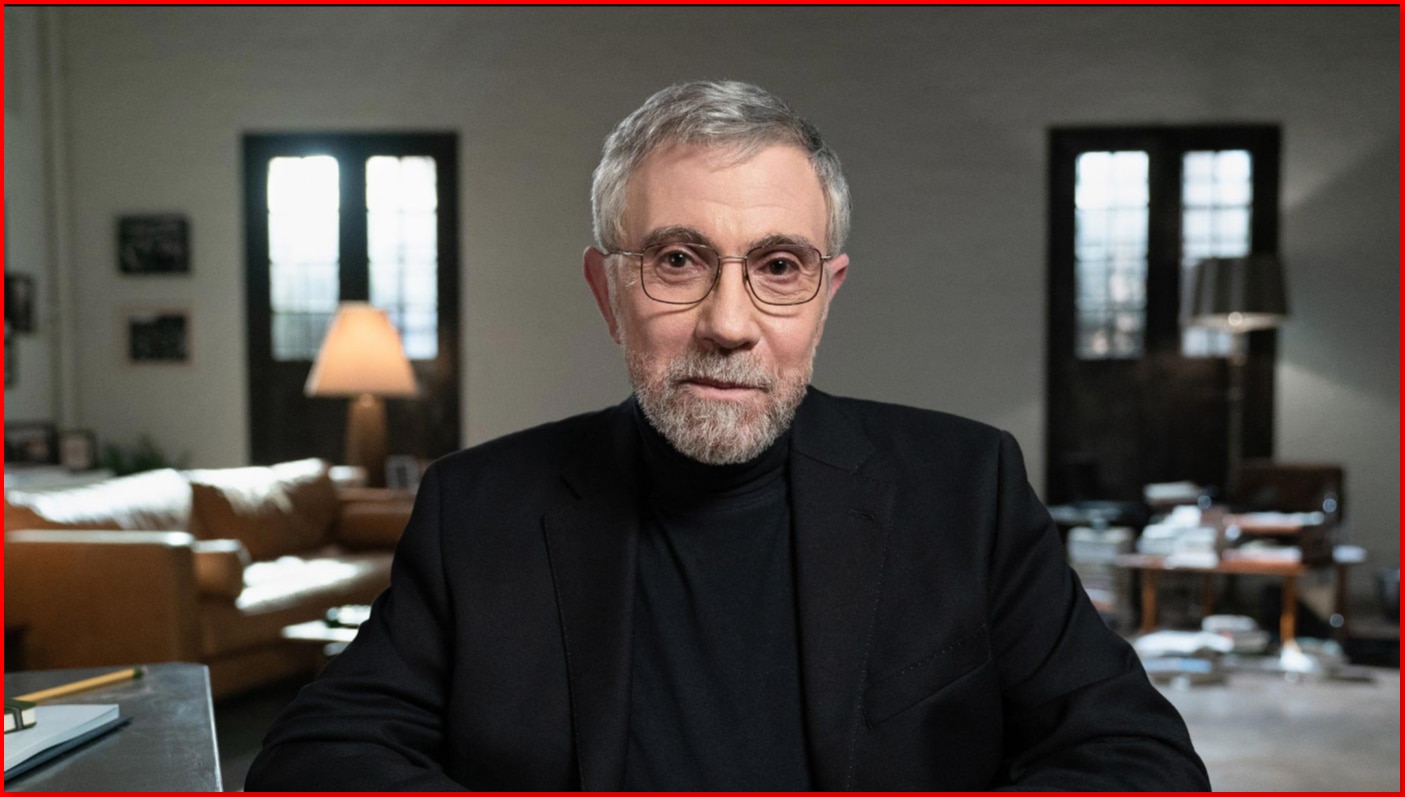
In the class, Krugman tells us why it’s important to earn and spend money wisely. He explains how markets work and what causes big economic problems. He also talks about different kinds of money, banking problems, and why some places get richer and others don’t.
Krugman discusses how not everyone gets the same chances, especially when it comes to race and gender, and how this is bad for the economy.
He shows how important it is to think about politics and culture in economics, not just business and money.
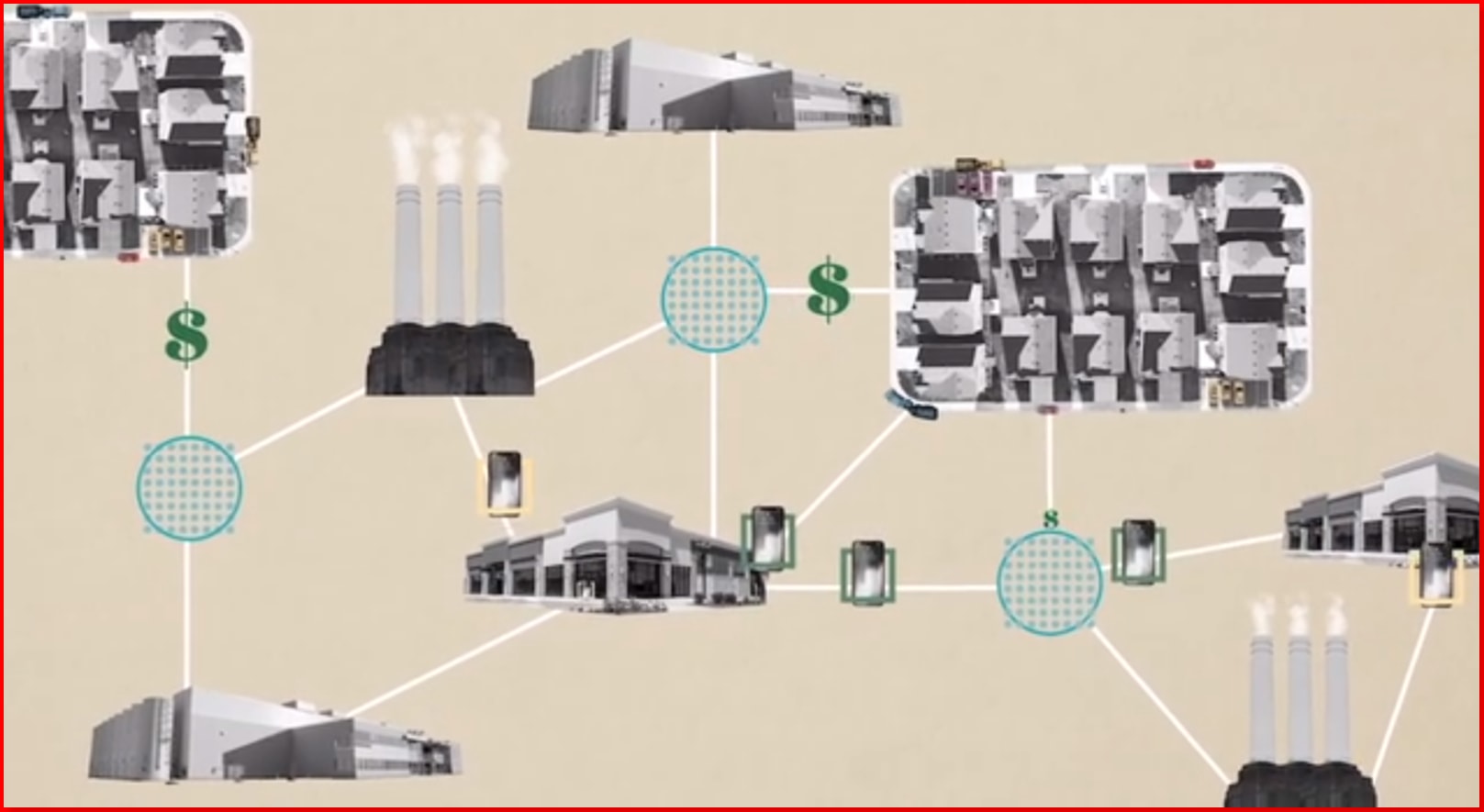
The class covers many topics, like government policies, health care, and how economics affects our lives. Krugman encourages students to think deeply and understand these topics.
He ends by saying that taking care of people’s basic needs is key to a strong economy. He also talks about a theory that explains how debt and lower prices can lead to bad economic times.
Aims and Objectives
The specific objectives of the course are to:
- highlight the importance of economic geography in analyzing contemporary societies and economies
- provide a comprehensive introduction to basic concepts and key theoretical approaches in economic geography
- introduce economic geography as a dynamic, diverse, and contested body of knowledge
- enable you to apply this knowledge to key social and economic issues in the context of economic globalization.
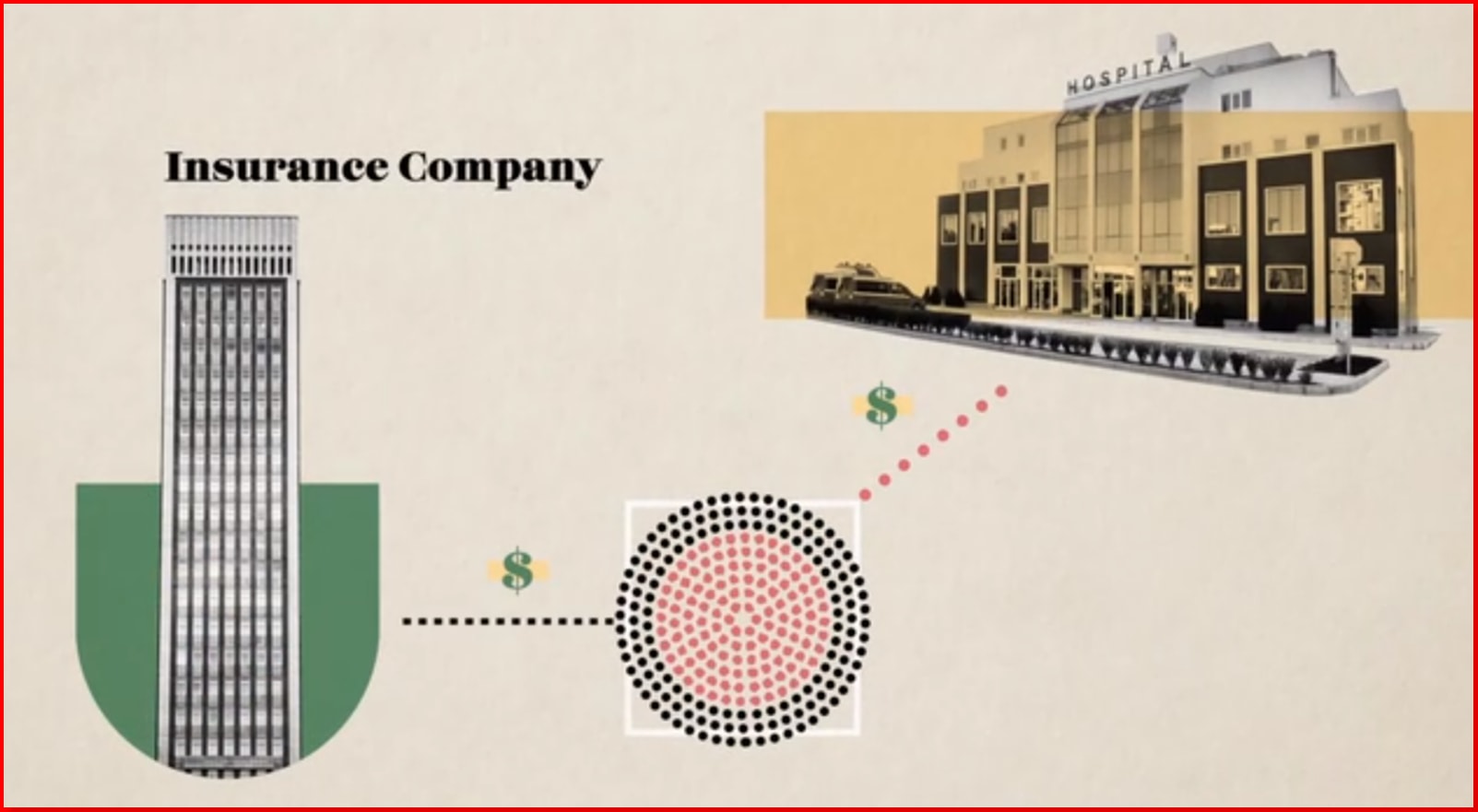
Discuss policy options for overcoming inequality and uneven development.
The commercial success of early internet firms brought venture capitalists and other investors to the area.
This created an even bigger technology cluster, which soon outgrew Palo Alto and came to cover much of the San Francisco Bay Area.
Economics deals with subjects that are often the source of intense academic and political debate.
Reading economics helps you to develop a strong grounding in the conceptual underpinnings of economics and the mathematical approach to the subject and its methodology.
You will learn to use key mathematical and statistical techniques through core modules in macroeconomics, microeconomics, and econometrics.
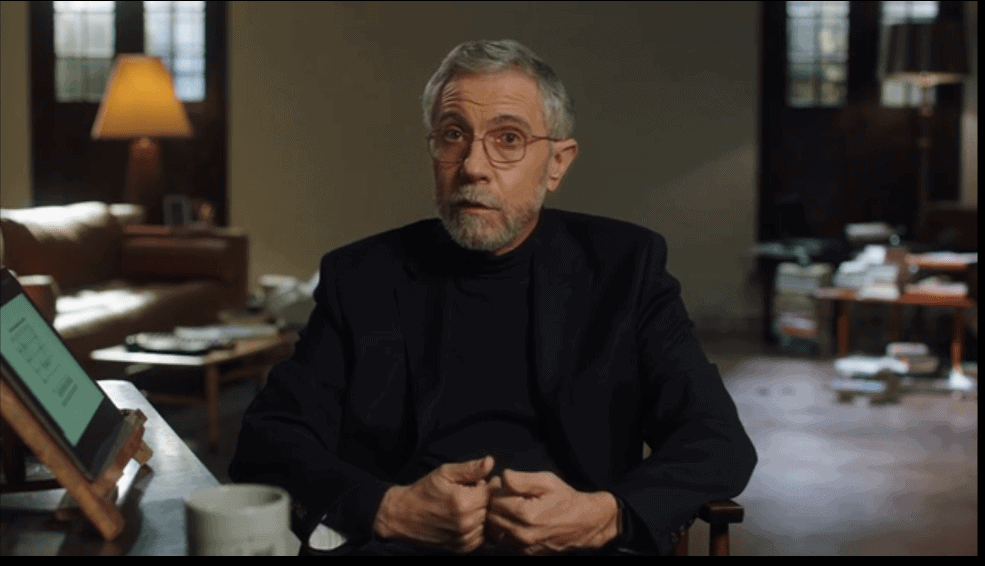
You will also have the opportunity to explore other areas of economics through a wide range of optional modules.
This spans a number of topics, including business, policy, economic history, and even the economics of climate change.
Modules from other subjects, such as history and politics, are also available and are a good way to broaden your knowledge and pursue other interests.
Paul claims that economics is complex and predictions are hard, especially about the future.
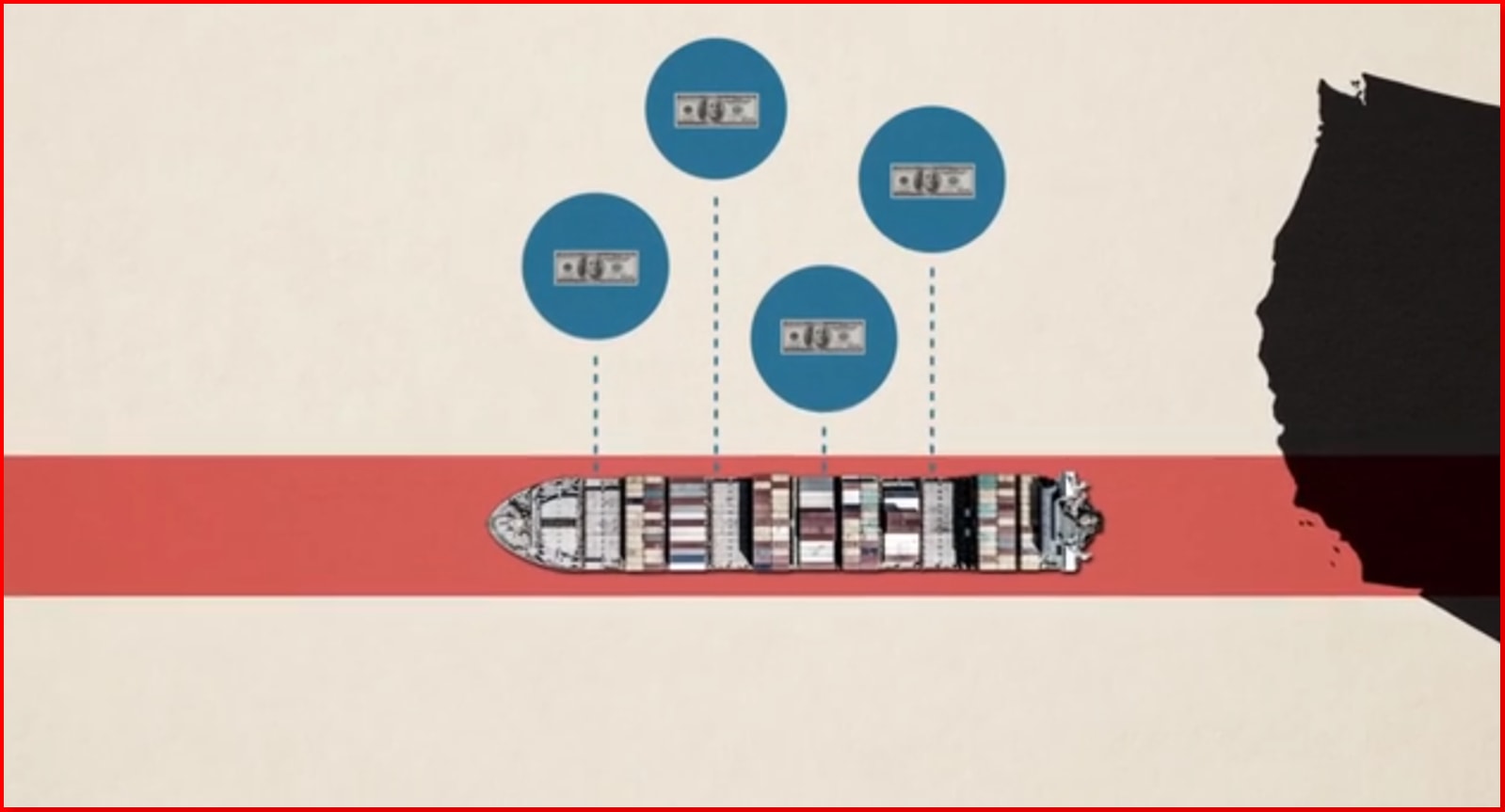
That means that from time to time, even the best economic analysts will be wrong.
The very best, however, will admit that they were wrong, try to understand why they were wrong, and incorporate that understanding.
Even very intelligent readers are often taken in by an argument that appeals to their own biases or makes a complex problem seem easy to understand. For example, lots of things are going on in the economy at once.
For Whom is The Paul Krugman Masterclass Course?
This course provides you with real-world applications and feeds into the teaching of both undergraduates and postgraduates. The course addresses important and topical socio-political issues – from an economic perspective, creating research outputs that Federal departments have used.
If you are approaching economics as your major, this course is very engaging and informative; it helps your historical, geographic, and practical approach toward economics and enhances your basics.
You’re likely just curious about how to leverage economic thinking to shape your everyday decisions—which is perfect since the study of economics is fundamentally about choices.
Following are the things that Paul has covered in his masterclass:-
- Variety of programs: economics is part of most aspects of everyday life.
- A focus on real life: economics is focused on learning from case studies.
- Excellent graduate prospects: Most students can easily find a job after graduation, as economists are needed in most businesses.
This course helps you stay aware, and it makes you a good citizen and knowledgeable individual; the teachings of this course can be applied to Business in general and in regular life, too.
What You’ll Need in Paul Krugman’s MasterClass?
When I signed up for Paul Krugman’s MasterClass, I wasn’t sure what to expect economics always felt like a big, confusing puzzle. But Krugman makes it about people, not just numbers, and walks you through ideas that actually matter. Here’s what you’ll pick up:
- How to Think Like an Economist: Krugman teaches you to see the world differently, helping you recognize everyday patterns and connect them to economic ideas.
- The Basics of Economics: You’ll grasp the simple stuff first: economics is about how people earn and spend, driven by incentives and trade-offs. Krugman explains it with stories, like how a farmer’s decision to grow corn affects your grocery bill. It’s practical, not textbook-dry.
- What Causes Economic Crises (and Fixes Them): Ever wonder why recessions happen? Krugman digs into real crises—like the 2008 crash—and shows you what went wrong (think banks and bubbles) and how governments step in with money fixes. You’ll learn why the Federal Reserve matters and what “stimulus” really means.
- Inequality and Why It’s a Big Deal: He breaks down why some people have so much while others struggle. You’ll see how history, race, and even being born in the right decade shape wealth gaps. It’s eye-opening—like realizing the game’s rigged for some players.
- Taxes and How They Work: Krugman tackles the tax debate head-on. You’ll learn why some argue for big cuts and why he thinks they’re overrated. He uses examples, like the 2017 tax plan, to show who wins and loses when the rules change.
- Healthcare Economics Made Simple: Why is healthcare such a mess in America? You’ll explore how private markets clash with human needs and compare it to systems in places like Canada. It’s less about politics and more about what keeps people healthy—or doesn’t.
- Global Trade and New Trade Theory: Krugman won his Nobel for this, and you’ll get the scoop. You’ll learn why countries trade, how it boosts (or hurts) jobs, and why globalization isn’t all good or bad. Think of it as decoding why your phone’s made halfway across the world.
- How Technology Shakes the Economy: From robots to apps, you’ll see how tech changes jobs and wealth. Krugman connects it to real life—like why some towns boom while others fade—and makes you think about what’s next.
- Reading the News Like a Pro: He shares tricks to cut through nonsense in the media. You’ll learn to spot bad stats, question hot takes, and find reliable info. It’s like a crash course in not getting fooled by clickbait.
- Using Economics in Real Life: Krugman wraps up with advice: stay curious, ask questions, and use what you learn. You’ll feel ready to join debates, vote smarter, or just chat about why gas prices are spiking—without sounding lost.
Paul Krugman Pricing- How Much Does Paul Krugman Masterclass Cost?
There are two ways you can purchase a MasterClass, a single MasterClass and an All-Access Pass for any of the gurus on the platform. Avail of All-Access pass with Masterclass Coupon Code.
- Single MasterClass: $90
- All-Access Pass: $180 per year
The All-Access Pass comes in real handy when you wish to take more than one MasterClass, so this means that there is no limit on the number of MasterClasses on the All-Access Pass.
A 30-day money-back guarantee is also available for any of the Timbaland MasterClass Review packages you purchase, and you will get a complete refund of the amount in case you are not satisfied with their services.
Paul Krugman’s Pros & Cons
Pros
- Comprehensive insight into the US economy and global economics.
- Uses historical events and a practical approach for better understanding.
- Connects economic concepts to real-life applications.
- Offers solutions and cautions for economic decision-making.
- Taught by Paul Krugman, a renowned economist.
- Learn anytime, anywhere with MasterClass and its mobile app.
- Includes a workbook and FAQ section for additional learning.
- Features clear visuals and reliable data for ethical presentation.
Cons
- The course is detailed and lengthy, which may feel overwhelming.
- Content-heavy, requiring multiple sessions to absorb all the information.
Quick Links:
- Bobbi Brown Masterclass Review
- Jeff Goodby and Rich Silverstein Masterclass Review
- Jane Goodall Conservation Masterclass
FAQs
📕 Do we get any workbook ?
The course Economics and Society provides you with a workbook by Paul Krugman in which he has explained every concept of this masterclass briefly and in detail.
🏆What are the Awards and Honors achieved by Paul Krugman
Nobel Prize (2008); John Bates Clark Medal (1991). Krugman was awarded a B.A. from Yale University in 1974 and a Ph.D. from MIT in 1977. From 1979, he also worked as a research associate at the National Bureau of Economic Research. In 2000 he became a professor of economics and international affairs at the Woodrow Wilson School of Public.
💁What is MasterClass?
MasterClass is the streaming platform that makes it possible for anyone to watch or listen to hundreds of video lessons taught by 100+ of the world’s best.
💡 What do I learn from it?
You learn the basics of economics, how to spot what drives money stuff like crises, and how to think critically about things like healthcare costs or global trade. Paul makes it real with examples.
👍 Is it good for beginners?
Yes! Paul starts simply and explains things clearly. You don’t need to know economics already, but it helps if you’re curious about how the world works.
🤓 Do I need to know math?
Nope! Paul skips heavy math and focuses on ideas. He uses a few charts, but it’s more about understanding than number-crunching.
🌍 Does it cover global stuff?
Yes, he talks about trade, globalization, and places like China. You’ll see how economics connects the world, not just the U.S.
❓ Can I get a refund?
You can! MasterClass gives you 30 days to try it. If it’s not your thing, cancel and get your money back.
😬 Is it too hard for newbies?
Not really, but it’s not baby steps either. Paul assumes you’re smart and jumps into concepts fast. If “supply and demand” sounds alien, you might pause to catch up.
⚡ What’s the coolest lesson?
I loved his take on economic myths like why “trickle-down” doesn’t always work. He busts bad ideas with facts, and it’s a total “aha!” moment.
🌎 Does it fit non-Americans?
Yep! Paul covers global ideas like trade and currency, not just U.S. stuff. He mentions Europe and Asia plenty, so it’s not stuck in one place.
🧩 Are there assignments?
The workbook has exercises like analyzing a news story with economic eyes but they’re optional. You won’t turn anything in, so it’s low-pressure.
💬 Does Paul answer student questions?
Nope, it’s all pre-recorded. You can talk to other learners in the community hub, but Paul doesn’t pop in. That’s a bummer if you want direct feedback.
🔍 Can I apply this to my life?
Totally! You’ll pick up tricks to judge stuff like tax plans or job markets. I even used his tips to argue about rent prices with my friends.
📊 Does it dive into data?
Not too much. Paul uses some graphs to explain trends, but he keeps it light no crazy spreadsheets. It’s more about big ideas than tiny details.
🧠 Will it change how I see the news?
Yes! Paul teaches you to question headlines and spot what’s really driving decisions. After this, I started catching economic angles in stories I’d ignored before.
Final Thoughts: Is Paul Krugman’s MasterClass Worth It?
After completing Paul Krugman’s MasterClass, I can confidently say it’s a great choice for beginners who want to understand economics engagingly. Krugman explains complex ideas using real-world examples, making topics like income inequality, financial crises, and globalization easy to grasp.
While the course is mostly U.S.-focused and doesn’t dive too deep into advanced economics, it’s perfect for anyone looking to build a strong foundation. If you’ve ever wanted to understand how money, markets, and policies shape the world, this MasterClass is definitely worth watching!

